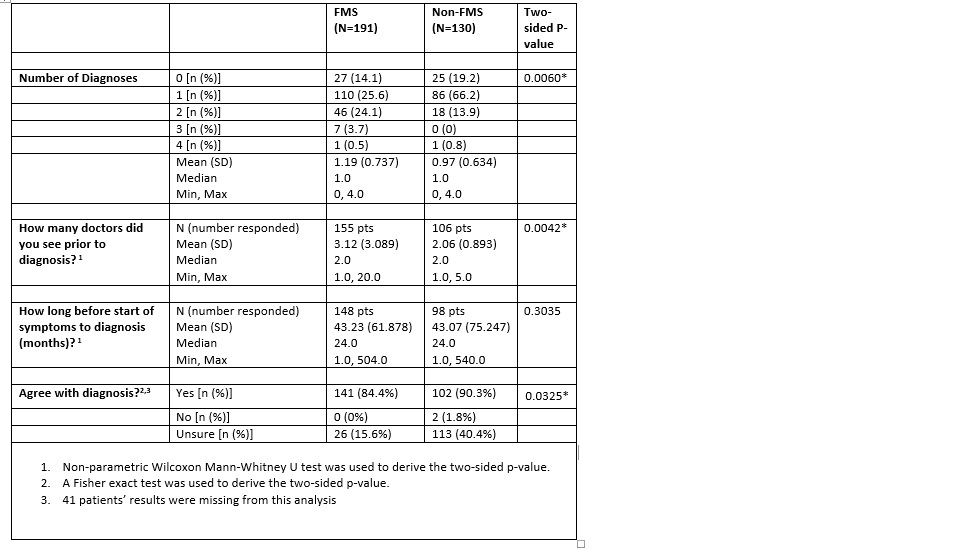Session Information
Session Type: ACR Poster Session A
Session Time: 9:00AM-11:00AM
Background/Purpose:
In a written office questionnaire, we asked patients the number of rheumatic disease diagnoses they had been given. We also asked about the length of time from the start of symptoms to receive a rheumatic disease diagnosis, how many doctors were seen, and whether the patient agrees with the current rheumatic disease diagnosis.
Methods:
Patients were given an in-office questionnaire, which listed the following rheumatic disease diagnoses. They checked diagnoses that they had received by clinicians.
Results: We asked 155 Fibromyalgia patients and 106 non fibromyalgia rheumatic disease controls, how many diagnosis’ they have previously been given. The mean age was 52.45 years for fibromyalgia patients and 50.39 years for non FMS rheumatic disease controls.
Conclusion:
Fibromyalgia patients receive multiple rheumatic disease diagnoses more often than other rheumatic disease patients. Fibromyalgia can be difficult to diagnose as patients often report widespread pain and subjective joint swelling, yet the clinician does not find synovitis on exam. The use of the 2011 published ACR criteria sheet developed for the diagnosis may assist the clinician and the patient in making the diagnosis of fibromyalgia. Having at least 12 points on this 31-point scale suggests the likelihood of the patient having fibromyalgia.
To cite this abstract in AMA style:
Katz RS, Polyak JL. Fibromyalgia Patients Often Receive Several Rheumatic Disease Diagnoses [abstract]. Arthritis Rheumatol. 2018; 70 (suppl 9). https://acrabstracts.org/abstract/fibromyalgia-patients-often-receive-several-rheumatic-disease-diagnoses/. Accessed .« Back to 2018 ACR/ARHP Annual Meeting
ACR Meeting Abstracts - https://acrabstracts.org/abstract/fibromyalgia-patients-often-receive-several-rheumatic-disease-diagnoses/

